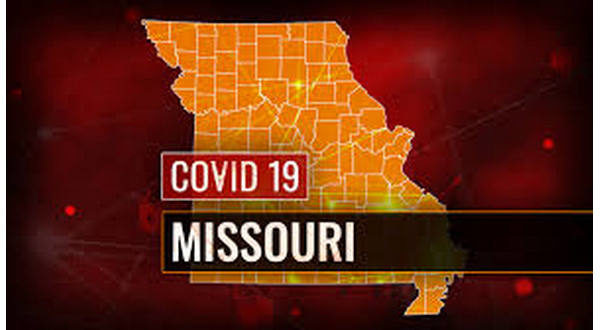
CLAYTON, Mo. (AP) – St. Louis County residents will not be required to wear masks in response to the COVID-19 pandemic for at least two more weeks, after a judge issued a temporary restraining order Tuesday against a mask mandate that was issued last month.Circuit Judge Ellen “Nellie” Ribaudo sided with Missouri Attorney General Eric Schmitt, who had sued to stop a mask mandate issued by St. Louis County Executive Sam Page and county health officials. She set a hearing on a preliminary injunction for Aug. 17.
The St. Louis County Council voted last week to rescind the mandate but Page insisted the mask requirement remained in effect.
Ribaduo said in her ruling the differing interpretations left St. Louis County residents on their own in deciding whether to wear masks. And she said the state was likely to prevail in its argument that current law gives the St. Louis County Council the authority to terminate the mask requirement issued by health officials.
“The court notes that although some will take this court’s ruling as a victory there is no victory while the COVID-19 virus remains a significant threat to public health and there is no question it remains a significant threat to public health,” Ribaduo wrote. “There can be no victory until the residents of St. Louis County and the State of Missouri are no longer risking their health, well being and lives at the hands of COVID-19 virus.”
Schmitt said in a statement that the ruling was a “huge win” for the people of St. Louis County.
“This is an important, hard-fought victory, but our fight against unreasonable and unconstitutional government overreach continues,” Schmitt said.
Page said in a tweet that health officials are disappointed in the judge’s decision as more mask mandates are being enforced across the county in the face of increasing COVID-19 cases.
“The (Centers for Disease Control and Prevention) recommends wearing masks in public places and we ask everyone to follow that guidance as we continue our vaccine efforts,” Page said.
County Councilman Tim Fitch, an outspoken critic of Page’s mandate, said the council felt all along that it was on sold legal ground.
“We don’t do these things emotionally like (Page) seems to,” Fitch said. “We would like to have the opportunity in the future to work with the county executive on any kind of health mandate as the law requires.”
During a virtual hearing before Tuesday’s ruling, Missouri Solicitor General John Sauer argued state law clearly gives political subdivisions such as the County Council the power to rescind public health orders, The St. Louis Post-Dispatch reported.
The “unlawful mask mandate,” Sauer said, would cause “human harms from the social isolation and the impact on children, the impact on small businesses and things of that nature.”
Neal Perryman, a lawyer representing St. Louis County, argued that issuing a temporary restraining order would only cause more uncertainty in the county, particularly if a higher court overturns it later.
“This is not some absurd, crazy idea that the state’s brief would lead you to believe that it is,” Perryman said. “It says wear a mask when you’re in a private space or indoor public space with exceptions to deal with religious issues, people with disabilities, people that are hard of hearing.”
Tuesday’s hearing did not consider a similar mask order in the city of St. Louis.
The legal fight comes as Missouri reported 574,125 confirmed cases of COVID-19 on Tuesday, an increase of 1,863 from the previous day. The state reported there have been 12,524 positive cases over the last seven days, with an average of 1,789 cases a day.
COVID-19 has claimed 9,755 lives in Missouri since the pandemic began, an increase of 88 deaths from Monday. Those numbers include 72 deaths that had not been previously reported to the state, according to the Missouri Department of Health and Senior Services.
In Kansas City, a regional health council on Tuesday issued a plea to residents to avoid using emergency rooms if possible because the region’s hospitals are seeing a surge in patients, causing hourslong waiting times and overwhelming hospital workers.
Steve Hoeger, co-chair of the Mid-America Regional Council’s Health Care Coalition, asked people to go to their primary care physicians or urgent care unless they have a true emergency, such as a heart attack or significant car accident, The Kansas City Star reported.
Many patients have chronic health conditions but delayed treatment when the pandemic hit, or when hospitals canceled procedures and surgeries.
“COVID is not the only player. We have a lot of other really sick people in the hospital,” Hoeger said. “But COVID’s becoming more and more of a player in this.”
WebReadyTM Powered by WireReady® NSI










